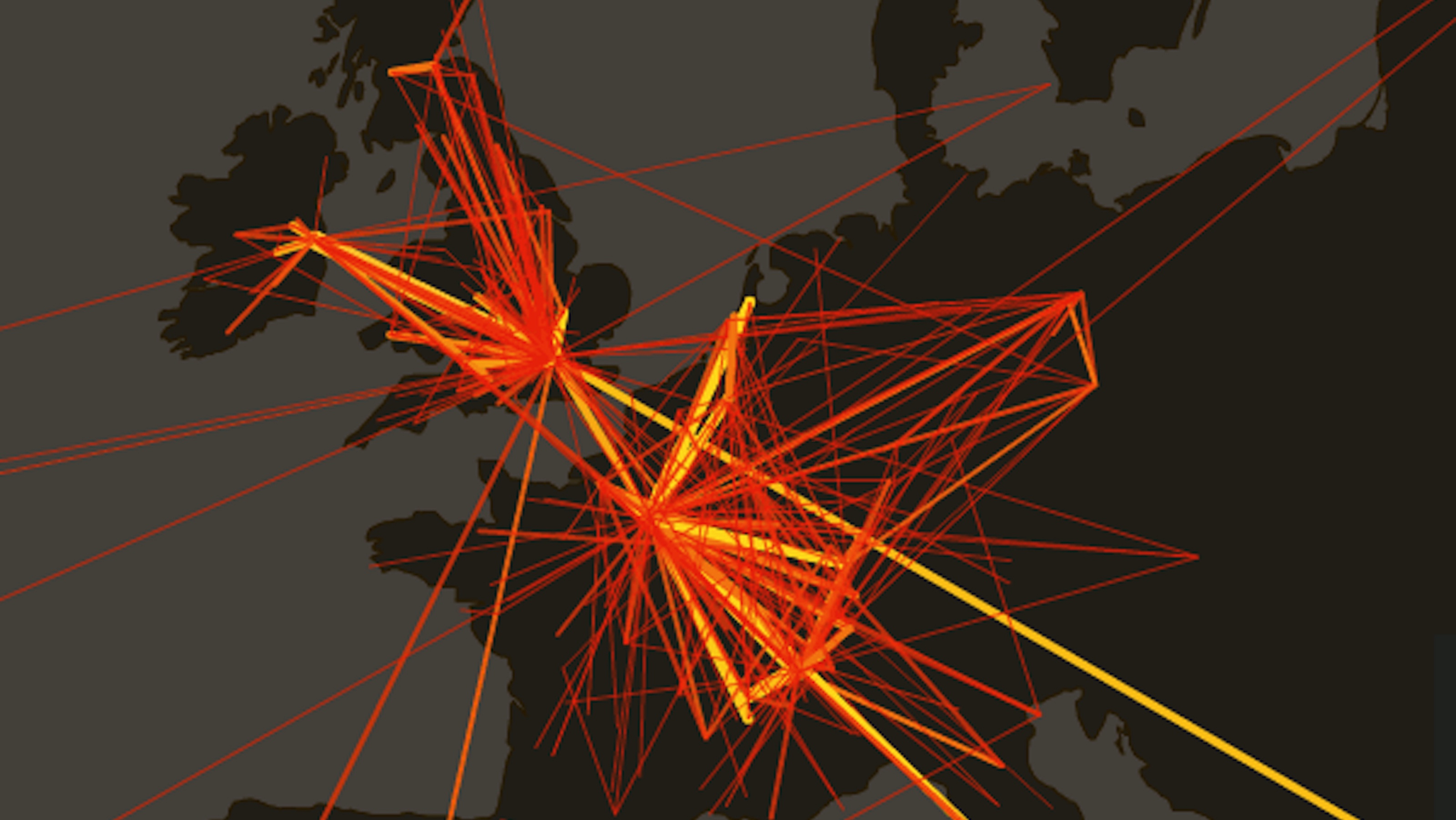There’s enough money in this country alone to make everyone happy. So why do so few have so much of it? Did they work hard for it? Not really. Think about the idea of an hourly wage. If you do X amount of work and the profits increase by Y, shouldn’t you get paid more? That isn’t true for 95% of the workforce. In fact, most people work hard just to make their bosses or the shareholders and investors of a company richer. Michael Slaby argues that we should revisit the idea of wealth in this country and perhaps swing to a universal base income. We could afford it, and it might make many millions of people a lot happier. Yet it goes against the oft-cited “American work ethic” that is propped up by the ‘hard work equals moving up in the world’ idea. Poverty could be eradicated using the techniques Slaby talks about, but it would take a lot of convincing to happen.
Michael Slaby: Look, I think change is scary. I think there is no way around that. I think what is familiar is easier for people, and not everybody wants disruption and innovation and entrepreneurship; not everybody wants to have seven jobs. That sounds terrible to a lot of people.
I think the idea, the sort of assumption that “everybody is an entrepreneur” is a bit of a mistake. I think many people are willing to be entrepreneurs given no other option, but a lot of those people would rather just have a job. Like not everybody is a founder. That's okay, this is not some failure. Founders are sort of unique animals in sort of our social ecosystem.
But what I think it requires of us as individuals is: this pace of change is unlikely to be slowed down in a way that is productive. It could be slowed down in ways that are super unproductive like being isolationists and protectionist and trying to make a global economy smaller in ways that ultimately hurt more people than it will help. There are ways of slowing down innovation, but I don't think any of them are actually good for people.
I think the reality is we have to get better at teaching flexibility. We have to teach critical thinking and adaptability to students as part of how we're preparing people for the future. We also have to be willing—this is where leadership matters a lot—willing to be more ambitious for ourselves. We tend to think about progress in generational terms, “I want my kids to be better off than I am.” Well, why wait for your kids? Like if it's easier and more effective to make something somewhere else we can take on a bigger problem.
And I believe that we can do that, that we have the capacity to embrace something more ambitious for ourselves now in our lifetime in a way that isn't terrifying and in a way that isn’t—it's about seeing these things as opportunities and addressing the anxiety of trying new things and embracing new things, and that requires leadership that is confidence-inspiring and that speaks to the discomfort that we're in, and that meets us at an emotional level of leadership that I think politicians are pretty scared of a lot of the time.
And I don't think it's just politicians, I think it's also business leaders, I think it's community leaders, I think this is a cultural shift in an attitude toward what “success” looks like and what “work” looks like.
And it may be the case that we're moving into this sort of post-industrial economy, we're sort of in this complicated shift and industrial jobs are moving and changing. Value is no longer linearly correlated with work. So in a typical industrial system, if I work more hours I create more value in a relatively linear equation, which is why an hourly wage makes sense.
But in a world where one more hour of work might create 10X more value, but in the world we're currently in all of that value goes to an investor and none of it goes to me as the worker, hourly wages make no sense.
And it might be the case that if we did a better job sharing in that value creation and spreading the cost of disruption around more effectively maybe we only need to work 30 hours a week, and maybe that is full employment.
Maybe our definition of full employment needs to be revisited just like a lot of our other assumptions. And maybe we don't need seven jobs, maybe we just need it to do a better job sharing the value we're creating, and that leaves more time to be parents.
Like I don't know that we need to take as a given the 40-hour work week. Most other countries don't and they haven't for a long time.
Look, I think that this concept of shared success and collective progress leads us toward a conversation that invites the question of universal basic income. I think it's a really interesting idea. I'm not an expert in it and I'm not convinced that it's the only answer. I think things like requiring companies to do things like profit-sharing is part of the same conversation that ultimately what universal basic income is about; is that we are collectively creating value and we should collectively share in that value. I believe in that 100 percent.
I think that we live in a community where accepting the suffering of any of us makes all of us poorer and makes all of us less well-off. And accepting that that is like the default part of the gradient should be unacceptable to us.
Is the answer a check from our government that creates a minimum layer? Maybe. That may be exactly the kind of public good that the government should create. The question is: who gets it, and how, and when, and what are the cutoffs?
Which is not to say it's a bad idea, I just think it's a lot more complicated at the point of implementation than most people talk about, of who qualifies? What if I make enough money? I mean this is a similar conversation to welfare, who qualifies, at what point am I making enough money that I don't qualify for that, and does that create a valley or a cliff in my economic well-being and progress that creates problems for people—that people get stuck in this valley, which is very true with especially welfare where you must be working to get to benefit from welfare. The work-first mentality that started in the '80s means that you can't like, for instance, study while on welfare because you have to work full time.
And so you can study at night and yes you can go to work and you can study at the same time, but it creates incentives that create this weird valley in the middle of, sort of the way welfare systems, our welfare system gets executed in the United States.
I think that's the kind of thing that we have to be really, really conscious and careful of with universal basic income. I think the concept that we should accept that anybody living in poverty shouldn't be acceptable to us.
We have enough wealth and value and opportunity in this country for that not to be true and I think accepting it as true is just us wimping out on a hard problem.





